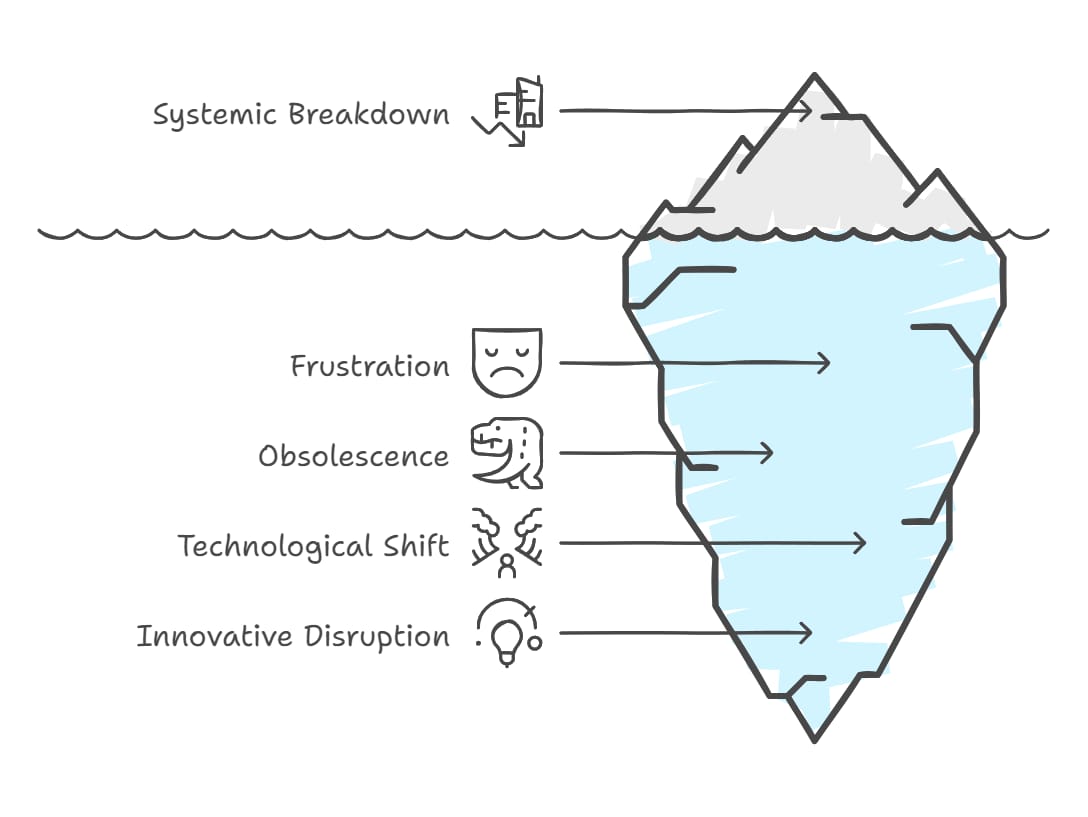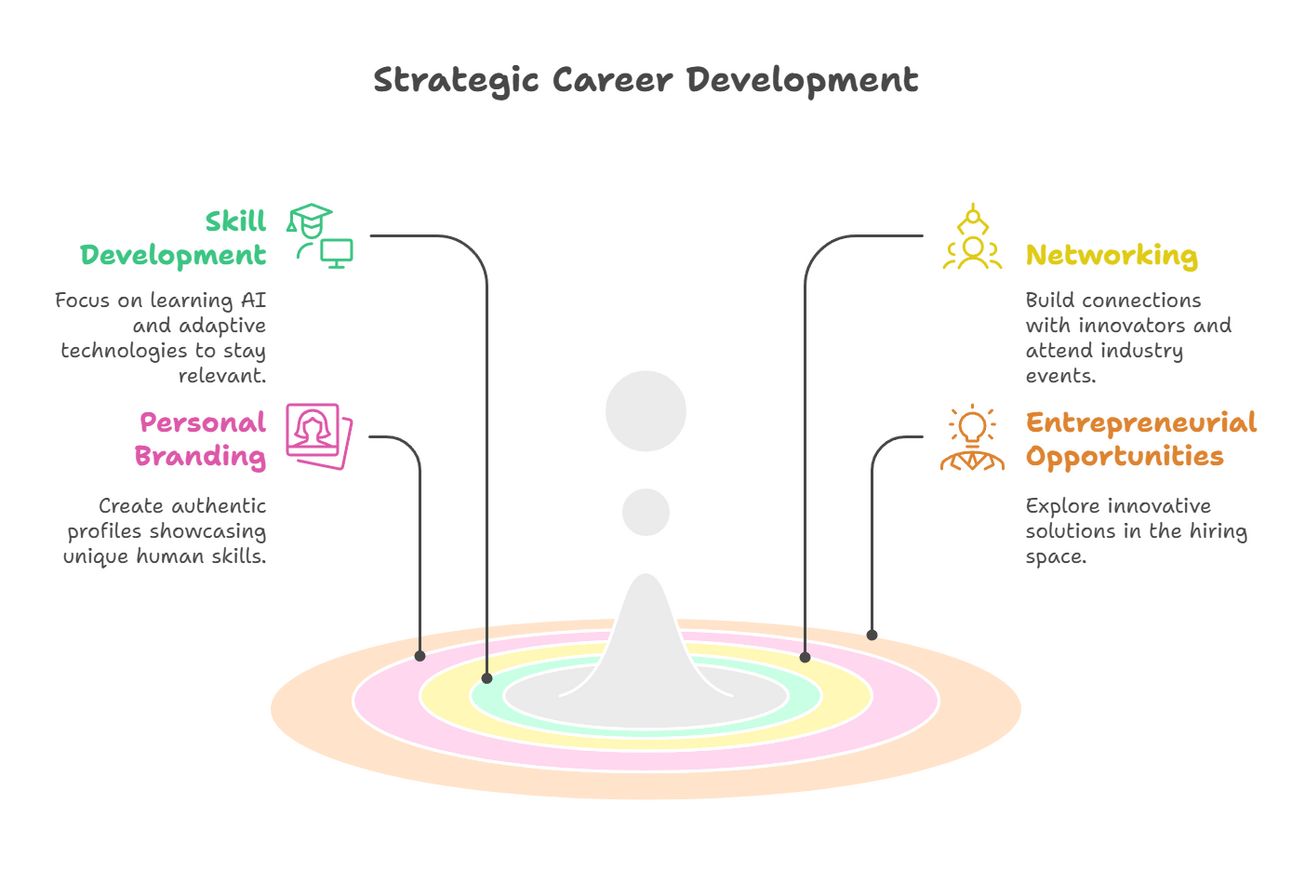- PM Tech House 🏠
- Posts
- How to Build Skills That Employers Want in 2025
How to Build Skills That Employers Want in 2025
How Students Can Overcome the Recruitment Challenge
Ever wonder why some of the smartest entrepreneurs get stuck in the hiring quicksand? Buckle up, because I'm about to take you on a wild ride through the tech industry's most broken system.
Look, I know what you're thinking. This isn't another flashy "get rich quick" story with viral TikTok hacks or pitch deck magic. This is real talk about a problem that's been driving startup founders crazy.
Last year, I found myself drowning in a sea of recruitment nightmares at my tech startup. Instead of throwing in the towel, I did what any obsessed entrepreneur would do: I went deep. And I mean deep. I dissected every single step of the hiring process — from the first resume to the final handshake.
The result? Hiring is f***ed. Yeah. That was pretty short.
My obsession with solving the hiring puzzle has taken me deeper than most would dare to go. I've been on a mission, speaking with founders, job seekers, recruiters, and everyone in between. I've listened, tested, challenged, and validated. And with every conversation, every hypothesis, the picture becomes clearer—and more alarming.
This isn't just another industry problem. It's a systemic breakdown that touches every corner of the tech world. The more dots I connect, the more I realize we're looking at something massive. And if there's one thing I've learned as a serial entrepreneur, it's this: massive problems create massive opportunities.
Is fixing the hiring quagmire a billion-dollar opportunity in 2025? Absolutely. And I'm not the only one who sees it. A new wave of scrappy startups and determined entrepreneurs—myself included—are already rolling up their sleeves, ready to revolutionize how talent meets opportunity.
Want to know how deep this rabbit hole goes? Stick around.
The Root Of The Problem
Hiring isn't just broken—it's completely unhinged. And I've got the receipts to prove it.
The current hiring landscape is a perfect storm of dysfunction. We're talking productivity paralysis masked by return-to-office debates, a corporate obsession with AI as a silver bullet, and recruiting processes so convoluted they've become self-defeating. Case in point: AI hiring systems rejecting AI-generated applications. Let that sink in.
And yeah, I got personal experience now. I was recently "dis-hired" (is that even a thing?), which sent me diving even deeper into this hiring quagmire. Pro tip: the view from down here is not pretty.
But here's the fascinating part. Most breakthrough solutions come from founders who've witnessed an industry's failures up close. This isn't just a problem—it's an opportunity disguised as chaos.
We're looking at a landscape with:

Broken systems
High-stakes frustrations
Dinosaur incumbents losing relevance
A technological shift creating the perfect smokescreen for innovative disruption
The billion-dollar question isn't just about what's wrong. It's about who's brave enough to fix it while everyone else is distracted building chatbots.
This Is How Every Billion-Dollar Opportunity Begins To Form
This isn't just a problem—it's a massive, systemic challenge that screams "massive opportunity."
Can it be fixed? Absolutely. But not overnight. We're talking a five-to-ten year marathon, not a sprint. Which means for ambitious entrepreneurs, the time to start is now. Miss this window, and you'll be watching from the sidelines.
Why aren't the big players like LinkedIn solving this? Excellent question.
About three-quarters into my deep dive, something became crystal clear: from a pure problem-solution perspective, the most logical fix would come from the incumbents themselves changing their approach.
But here's the catch—logical doesn't mean likely.
The most groundbreaking solutions rarely come from established players comfortable with the status quo. They emerge from hungry entrepreneurs who see the systemic flaws as an invitation, not an obstacle.
Here are a few questions:
Current job boards are a massive failure—and everyone knows it except the platforms themselves.
Success rates? Abysmal. Ask job seekers, and you'll get a stream of frustrated profanities. Ask HR professionals and recruiters, and they'll tell you these platforms have transformed hiring from a strategic process into a nightmare.
The culprit? Automation, Applicant Tracking Systems (ATS), and AI.
Picture this: Automation created a haystack. ATS made that haystack enormous. Then AI started generating and throwing more needles into an already impossible landscape. The result? A completely broken system where:
Job seekers spray resumes into the void
Companies can't find the right talent
AI is "solving" a problem it's actually making worse
LinkedIn and Indeed's response? "Everything's fine. We'll just add more AI."
Translation: We've got entrenched incumbents with massive hubris. And in the startup world, that's the perfect recipe for disruption.
So Why Isn't There a Hiring "Gold Rush" Happening?
Here's what happens during a technology gold rush. It happened with crypto and NFTs, and cloud/SaaS before that, and mobile before that, and so on.
When a new technology starts to mature, the use-cases for it expand, the costs to implement it go down, and so access to it goes up. This happens quickly, like lightning fast, and usually before it gets to the press or the general public consciousness.
By the time that happens, the smart money has already been made, but the dumb money follows. And follows. And follows. And the technology is all anybody talks about for months, maybe a couple years, and then television commercials appear for it, and then it gets parodied and memed, and then it's a commodity with a monopoly or duopoly controlling it.
The reason there isn't a hiring gold rush is because there's still an AI gold rush. That's the smokescreen.
But the smart money has already moved on.
There Are Already Disruptors Forming
The thing is, I'm not giving away any secrets here. At about the same time I realized that LinkedIn and Indeed wouldn't be interested in solving the problem because they were too invested in the problem — and in fact throwing a bunch of AI at the problem, making the problem bigger — I also realized that there were already a number of startups, entrepreneurs, and just plain smart people thinking about the problem and working on a solution.
I realized this because a bunch of them started reaching out to me.
Why would they do this? And furthermore, if I'm also working on a solution, why would I talk to them?
Because if it really is a billion-dollar problem that could unlock a billion-dollar opportunity, a good sign is that a bunch of people have already spotted it and have realized that it's not something that's going to be whipped up in a dorm room or at Y-Combinator.
And yes indeed, there are dozens of companies already working on the solution to hiring as more than just building a better LinkedIn or throwing more AI at the problem. They have real, innovative ideas that get me excited. They're mostly at the same place I am, some further ahead, some just wanting to help fix the problem. Some know what they're onto in terms of the scope of the opportunity, others are just going on gut because it "feels big."
If it's easy to win, if you can win in stealth mode, it's a small idea. If it's going to be a slog and a battle to win, it's a big idea.
So yeah, this is more than a lousy job market. It's more than complaining about a shitty job-search experience. It's a reinvention of not only how we find work, but maybe work itself, at least in the tech industry.
The Path Forward: Turning Hiring Disruption into Opportunity
What we're witnessing isn't just another industry problem—it's a fundamental transformation of how talent meets opportunity. The hiring ecosystem is ripe for reinvention, with technological disruption creating a unique window for innovative solutions.

Strategic roadmap:
Embrace the Disruption
Develop skills beyond traditional curriculum
Learn AI, data analysis, and adaptive technologies
Build capabilities that transcend automated systems
Strategic Positioning
Network with hiring innovation entrepreneurs
Attend tech conferences and startup events
Cultivate a critical view of current recruitment processes
Personal Evolution
Create authentic, human-centric professional profiles
Showcase problem-solving and creative thinking
Develop skills that automation can't replicate
Entrepreneurial Mindset
Explore potential solutions in the hiring space
Seek internships with innovative HR tech startups
Build portfolios that highlight unique human capabilities
This is a five-to-ten year journey. The winners won't be those who move fastest, but those who deeply understand the intersection of work, technology, and human potential.
The hiring revolution is already underway—with the most innovative solutions emerging just below the surface of mainstream attention. Students who recognize and adapt to this systemic shift will be best positioned to thrive in the evolving work ecosystem.
The smartest move? Start thinking beyond current limitations. The future of work is being written right now.